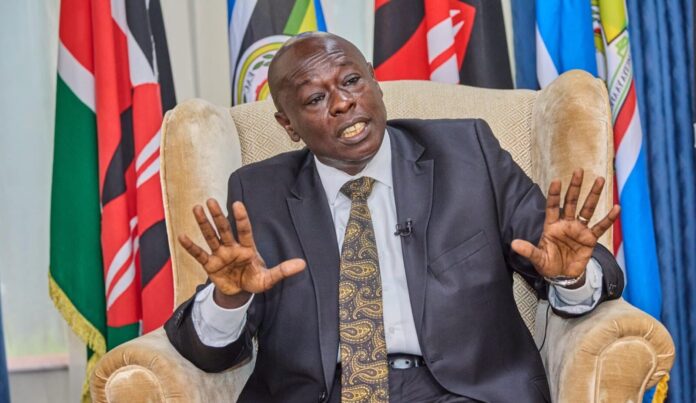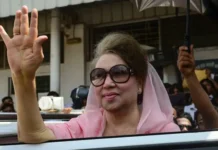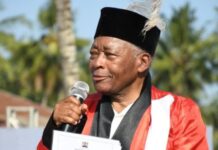Nairobi, Kenya — Just days after the dramatic police raid on Trans Nzoia Governor George Natembeya’s residence, Kenya is once again staring down a deepening political crisis—this time involving former Deputy President Rigathi Gachagua, who is reportedly the target of a multi-agency state crackdown.
Reports that emerged on May 18 allege that elite units from the Directorate of Criminal Investigations (DCI), General Service Unit (GSU), National Intelligence Service (NIS), and other special forces descended on Gachagua’s homes in Wamunyoro, Mathira, and Karen, with what insiders described as the intent to arrest him.
No official charges have been made public, and the government remains conspicuously silent.
Leading the charge in condemning the operation was Cleophas Malala, Deputy Party Leader of the Democracy for the Citizens Party (DCP), who labeled the raids as “illegal occupations” meant to silence dissent.
“This evening, officers drawn from the DCI, GSU, NIS, and other special forces raided and illegally occupied my party leader H.E. Rigathi Gachagua’s homes… attempting to arrest him for only God knows what!” Malala said.
He further accused President William Ruto’s administration of weaponizing state institutions to crush political rivals, calling the actions “a sign of a failing regime.”
The condemnation didn’t end there. John Kaguchia, MP for Mukurwe-ini and a known Gachagua ally, criticized the alleged operation as a violation of democratic principles.
“Shame! Shame! The Kenya Kwanza Government mobilized a contingent of over 100 masked GSU police to waylay us… The unveiling of a new political party has rattled the establishment the wrong way!” Kaguchia exclaimed, referencing a possible trigger for the crackdown.
Nyandarua Senator also confirmed that Gachagua’s homes had been surrounded and held by DCI agents.
“To all media houses, kindly be informed that the DCI has taken hostage both of Rigathi Gachagua’s houses at Karen and Wamunyoro. They are currently hunting him. We are yet to be informed of the reason,” the senator noted.
The political temperature has surged since Gachagua’s May 16 interview, where he warned of potential unrest if the 2027 general elections were manipulated. He invoked the specter of the 2007–08 post-election violence, which left over 1,000 people dead and hundreds of thousands displaced.
“Even if President William Ruto appointed his close allies to head the IEBC, the margin of defeat in 2027 would be too large,” Gachagua asserted, dismissing claims that the so-called ‘deep state’ could rig future polls.
Gachagua praised Gen Z for their political consciousness, describing them as immune to tribalism and bribery.
“This generation is ready to vote. They’re not interested in the politics of handouts or ethnic loyalties,” he said.
As the accusations fly and tension mounts, Interior CS Kithure Kindiki offered a contrasting tone, dismissing fears of a return to post-election violence.
“Kenya will never return to political violence. Not in 2027, not at any other time in future,” Kindiki declared.
He emphasized that the nation had learned its lesson from the dark days of 2007–08, promising that the rule of law and national unity would prevail.
With two high-profile leaders—Governor George Natembeya and now Rigathi Gachagua—targeted within days, the Kenyan political landscape is entering turbulent waters. The silence from state agencies only deepens the mystery and heightens speculation of a systemic clampdown on dissenting voices.
Whether this is the beginning of a major political showdown or a temporary storm remains to be seen.
Stay with Uzalendo News for continued coverage on Kenya’s evolving political situation.
By Kelly Were



















